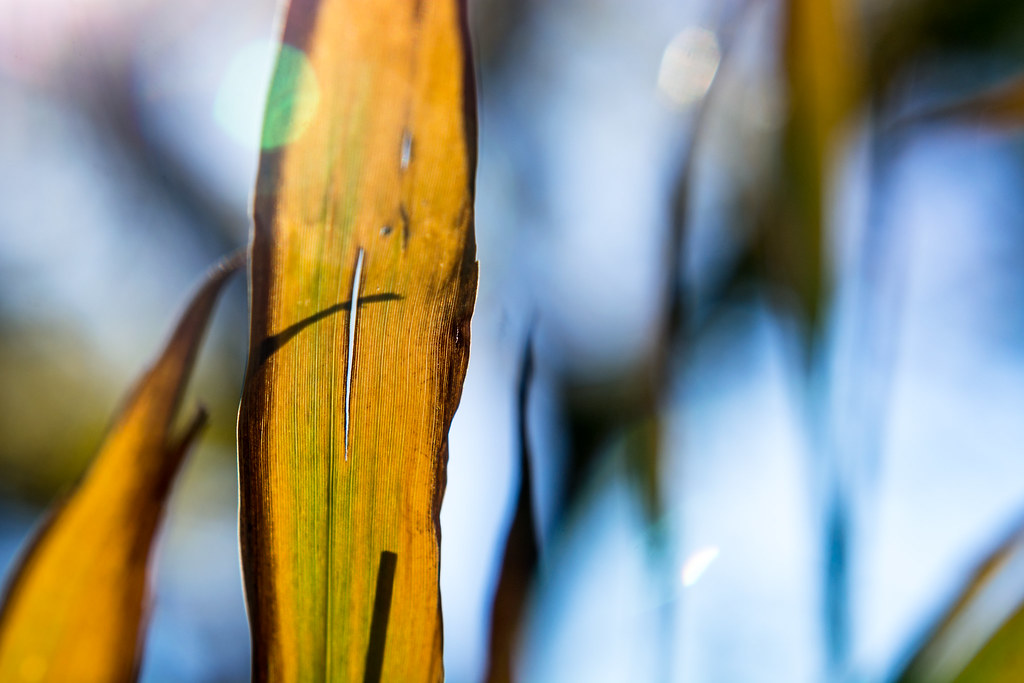I’ve noticed a theme developing with some of the pictures I take when out walking around, often on campus during a short break, which is less about the types of images I’m recording with my camera and more about the way in which I find them. This picture is the most recent example but I’ve seen it plenty of other times too, and the idea is that I often find photographic opportunities on the latter part of a walk. And I’m not talking some kind of milti-mile hike here, but just a short 5-minute walk around Theta Pond on the OSU campus. During the first few minutes I often look for picture opportunities but, and it’s weird how often this happens, I don’t usually find any. I end up just walking around looking at the trees, flowers, ducks, squirrels, and taking it all in for a little while. (Which, I might add, is one of the nice parts about working on a college campus.) I often snap some pictures here and there but rarely does anything strike me as interesting, creative, or…good.
However near the end of one of these walks as I get close to my building I have often found myself noticing more than I did at the outset, and this is when I get the shots I’m most happy with. This week’s picture, for instance, was taken just across the street from my building after I had walked around the pond and was headed back to my office. I saw a cluster of short, thick grass by the edge of a sidewalk and realized it would make an interesting picture. I crouched down low with my D7100 and a +4 filter attached to the 50mm lens and took a few photos with the grass severely backlit by the overhead sun, and was super happy with the result.
I think what’s happening here is that during the first part of one of these 5-minute walks my brain is just starting to clear itself from the tasks on which I have been concentrating and I find myself less open to artistic or creative forms of expression. After a little while of ambling around and just being a part of nature I think my mind starts to reset itself and by the end I am much more likely to see subjects, colors, and details that I had entirely missed at the outset. Of course all this is anecdotal and a conclusion cannot be drawn from just one person’s experience, but it does make me wonder about whether this is a legitimate phenomenon.
So my advice to you, readers of this blog, is the next time you feel yourself eagerly searching for a photo opportunity but coming up empty-handed, put your camera away and just exist for a little while–outdoors in nature if at all possible. Let your mind relax, wander, and soak in the sights around you and then pick up your camera and see what you can find. I can’t say it will work for sure, but I do think it might and I’d be eager to hear your thoughts about all this in the comments below :)

Mary Anne Edwards says
Hi,
Before I reached your proposed theory as to why you get your pictures toward the end of your walk, I was thinking the same reason. Clearing your head of the work pressures was needed before the creative juices would flow freely. I would propose that you also alter the direction of your walks; start in the opposite direction and see if things look different photographically. It’s a really beautiful picture!
Simon says
Mary Anne, that’s such a great (and simple) idea I can’t believe I never thought about it! Almost every time I go out for a walk I take the same route or the same direction, so next time I’m going to switch things up and see what happens :) Thank you!
Lisa says
Good Advice!
Simon says
Thanks Lisa!
Dennis says
I think this is true of most of our lives. We are so preoccupied with the pressure of the moment that we really don’t recognize the things that are going on around us. Once we slow down and clear our minds of the current distraction, we begin to see and sense the little things around us. Sometimes this comes more easily that others, such as when we are out in nature.
‘
Simon says
Dennis, I really appreciate your comment and it reminded me of a book I just finished reading called The Slow Professor which deals with that exact same phenomenon. The premise is very similar to what you describe, and the authors argue that slowing down and taking a more thoughtful approach can help the lives of not just college instructors but pretty much everyone. I think we could all improve ourselves by slowing down to clear our minds :)
Rebecca says
Oh it is definitely a phenomenon. I d the exact same thing. I walk around a while before something catches my eye and I get in my groove. I ind that a lot of times, what catches my eye is the light.
Simon says
Isn’t it interesting what our eyes respond to, Rebecca? If we see something shiny it grabs our attention, and this is something I notice in my kids all the time. I wonder what would happen if the next time I go out on a walk I try to deliberately look for things that might appear dull and boring. Hmm.
Rebecca says
Good question.